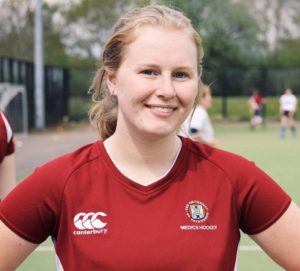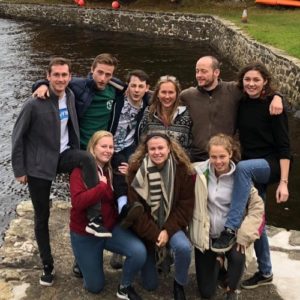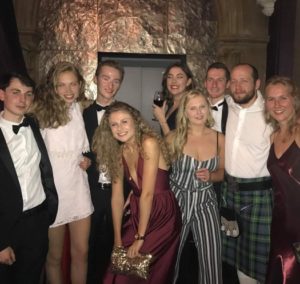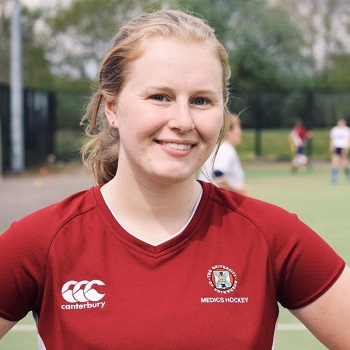
Hi, I’m Lucy Stewart and for my third year of medicine I intercalated in anaesthetics, critical care and pain medicine (ACCPM).
I chose this programme for two main reasons; firstly it was a speciality I was interested and I felt intercalation would give me an ideal opportunity to explore this field more.
Secondly, I was looking for an intercalation that offered some clinical exposure thought the year. This course not only incorporated clinical teaching experiences thought the year, but there was also the option of completing a clinical/patient based research project (which appealed to me much more than a lab or library one!)
An opportunity to do something new and different
I was looking forward to intercalation, it was an opportunity to do something new and totally different to anything I had done in first and second year of medicine. However, I was also hesitant about beginning the year as I had heard of people in older years who hadn’t enjoyed their intercalated degree.
Looking back now, intercalation has been one of my best experiences at uni so far. It’s important to remember that everyone is different, so just because someone you know didn’t like their degree, doesn’t mean you won’t!

Everyone’s in the same boat
Within the intercalated degree, there is a much stronger emphasis on self-directed and independent learning – which is totally different to how first and second year of medicine was taught.
While this was hard to begin with, you quickly understand how and what to learn. It’s important to remember that all your peers are in the same boat – and so they are the best people to help you out if you are struggling in the beginning.
Super-friendly consultants
Academically, the clinical experiences were definitely a highlight for me. To an extent we were basically able to attend any theatre, at any time and so got to see a whole range of surgeries and patients. Alongside this, we also had opportunities to spend time in ICU, on the pain round and in pre-op assessment clinics, again allowing us to see a huge variety of things which definitely enriched our learning.
What I particularly found surprising was how welcoming all the consultants were: everyone was super-friendly and enthusiastic to teach us.
My clinical project
A second academic highlight for me was having the opportunity to complete a clinical project. My supervisor ensured that I was involved at every stage of the process and so I helped in the completion of an ethics application. This involved attending an ethics committee review meeting, screening and recruiting patients, obtaining consent from next of kin and carrying out our test on patients. Being heavily involved in all these stages resulted in this being an invaluable learning experience.

Making new friends
Intercalation also offers the ideal opportunity to make new friends be it with other medics in your year or non-medics studying the same degree as you for the year.
ACCPM is a small course (only nine people in my year) and this allowed us all to rapidly form strong friendships with one another. Not only is it nice to meet and get to know new people, your peers will provide an essential support system throughout the year.
One particular highlight was our trip to Firbush in first semester, which allowed us to get to know each other (and the anesthetics staff in a more relaxed environment).
Staying in touch
With intercalation there is less contact time than in first and second year of medicine with a stronger emphasis on self-directed learning. This leaves you with much more free time and therefore the intercalated year is the ideal time to do many things outside of work.
For example, I played hockey for the medics team, was on the Royal Medical Society (RMS) Council and took part in the Medics Reveal. All of these things allowed me to stay to stay in touch with medicine and my other medic friends.
While I did enjoy my intercalated degree and taking the time to step away from clinical medicine, I am now looking forward to moving into 4th year and getting out onto the wards.



